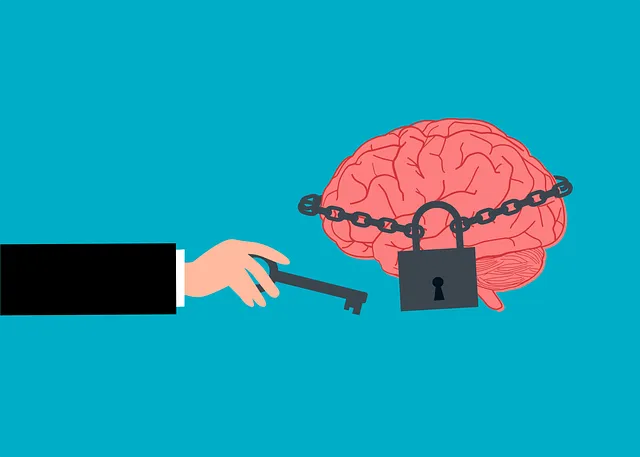Centennial, part of the Kaiser network, prioritizes mental health support with comprehensive services including counseling, tailored therapy programs, and innovative workshops like Empathy Building Strategies and Stress Management. Their risk assessment approach goes beyond diagnosis, utilizing questionnaires, clinical interviews, and emotional intelligence to tailor interventions. Post-crisis, ongoing support through community resources is emphasized, fostering resilience and recovery. Both Kaiser's evidence-based strategies and Centennial's Mental Health Awareness initiatives demonstrate a commitment to 21st-century mental health care.
“In today’s complex landscape, effective crisis intervention is more critical than ever. This comprehensive guide explores essential strategies for navigating mental health crises, with a focus on the vital role organizations like Centennial and Kaiser play in providing critical care. From understanding the foundational concepts of crisis intervention to identifying and assessing mental health emergencies, this article delves into evidence-based practices and post-intervention support. Discover how Centennial and Kaiser’s mental health services contribute to fostering resilient communities.”
- Understanding Crisis Intervention: A Brief Overview
- Centennial's Role in Mental Health Services
- Identifying and Assessing Mental Health Crises
- Evidence-Based Strategies for Effective Intervention
- Post-Intervention Support and Community Resources
Understanding Crisis Intervention: A Brief Overview

Crisis intervention is a critical aspect of mental health support, designed to provide immediate assistance and guidance during moments of intense distress or turmoil. It involves a range of strategies aimed at stabilizing individuals, helping them cope with challenging situations, and preventing potential harm. When faced with a crisis, whether it’s a personal dilemma, a traumatic event, or severe anxiety, having access to effective intervention can make a significant difference in one’s recovery journey.
At Kaiser, a renowned healthcare provider like Centennial does offer mental health services as part of its comprehensive care approach. These services include professional counseling and therapy programs tailored to address various mental health concerns. By equipping individuals with coping skills development, risk assessment becomes more manageable for mental health professionals. Additionally, strategies focused on anxiety relief play a pivotal role in crisis intervention, enabling individuals to navigate challenging situations with greater resilience.
Centennial's Role in Mental Health Services

Centennial plays a pivotal role in enhancing mental health services, particularly within the Kaiser network. The organization’s commitment to Mental Health Awareness drives various initiatives aimed at breaking down barriers and promoting open discussions on psychological well-being. Through innovative programs and collaborative efforts, Centennial fosters an environment that encourages individuals to seek support without stigma.
One of their notable contributions is the implementation of Empathy Building Strategies across Kaiser facilities. These strategies focus on training staff to recognize and respond to mental health crises effectively. Additionally, Centennial organizes Stress Management Workshops tailored for both healthcare professionals and the community, empowering them with valuable tools to navigate stress and anxiety. Such proactive measures not only benefit individuals seeking treatment but also contribute to a culture of holistic well-being within the organization.
Identifying and Assessing Mental Health Crises

Identifying mental health crises is a critical step in crisis intervention. It requires trained professionals to recognize warning signs and symptoms that may indicate severe emotional distress or psychotic episodes. At Kaiser, which offers comprehensive healthcare services, including mental health services, providers are equipped with tools like risk assessment questionnaires and clinical interviews to evaluate an individual’s psychological state. The process involves understanding not just the severity of symptoms but also their sudden onset and potential impact on daily functioning.
Assessing mental health crises goes beyond diagnosing disorders; it encompasses gauging the individual’s ability to manage stress, cope with challenges, and maintain social connections. Emotional Intelligence, a key component in risk management planning for mental health professionals, plays a significant role here. By combining clinical expertise with an understanding of emotional dynamics, healthcare providers can tailor interventions to boost clients’ confidence and empower them to navigate future crises effectively.
Evidence-Based Strategies for Effective Intervention

In the realm of crisis intervention, evidence-based strategies play a pivotal role in effective support. Organizations like Kaiser Permanente recognize this and offer comprehensive mental health services to their members, including innovative approaches tailored to the 21st century. One such strategy gaining traction is Empathy Building Strategies. By fostering a sense of understanding and connection, these techniques help individuals feel seen and heard during distressing times. For instance, actively listening without judgment allows people to express their emotions freely, an essential step in calming anxious minds and providing Anxiety Relief.
Furthermore, incorporating Mental Wellness Journaling Exercises as part of crisis intervention can be immensely beneficial. Centering on the individual’s experiences and thoughts, journaling prompts them to reflect on their feelings and identify potential triggers or coping mechanisms. This self-exploration not only facilitates emotional processing but also empowers individuals to take charge of their mental wellness. Such evidence-based practices ensure that crisis interventions are both immediate and long-lasting, contributing to improved overall mental health.
Post-Intervention Support and Community Resources

After a crisis intervention, providing ongoing support is crucial to ensure individuals can fully recover and rebuild their lives. Community resources play a significant role in this process, offering various services that cater to diverse needs. For instance, local mental health organizations often provide counseling and therapy sessions, helping individuals process their experiences and develop coping mechanisms. These resources are invaluable, especially for those who may not have access to private healthcare or are hesitant to seek professional help.
In the case of Kaiser in Centennial, Colorado, the healthcare provider offers a range of mental health services designed to support community members during challenging times. Their expertise in crisis intervention guidance and conflict resolution techniques complements the broader Mental Health Awareness efforts within the region. By leveraging these resources, individuals can access much-needed assistance, fostering resilience and empowering them to navigate future crises more effectively.
Crisis intervention is a vital aspect of mental health support, and understanding the various strategies can make a significant difference in individuals’ lives. As organizations like Kaiser and Centennial provide mental health services, it’s crucial to recognize the importance of evidence-based practices. By identifying crises early, assessing risks accurately, and implementing effective interventions, we can ensure better outcomes for those facing mental health challenges. Post-intervention support and connecting individuals with community resources further strengthen this process, fostering a more resilient and supportive environment.






